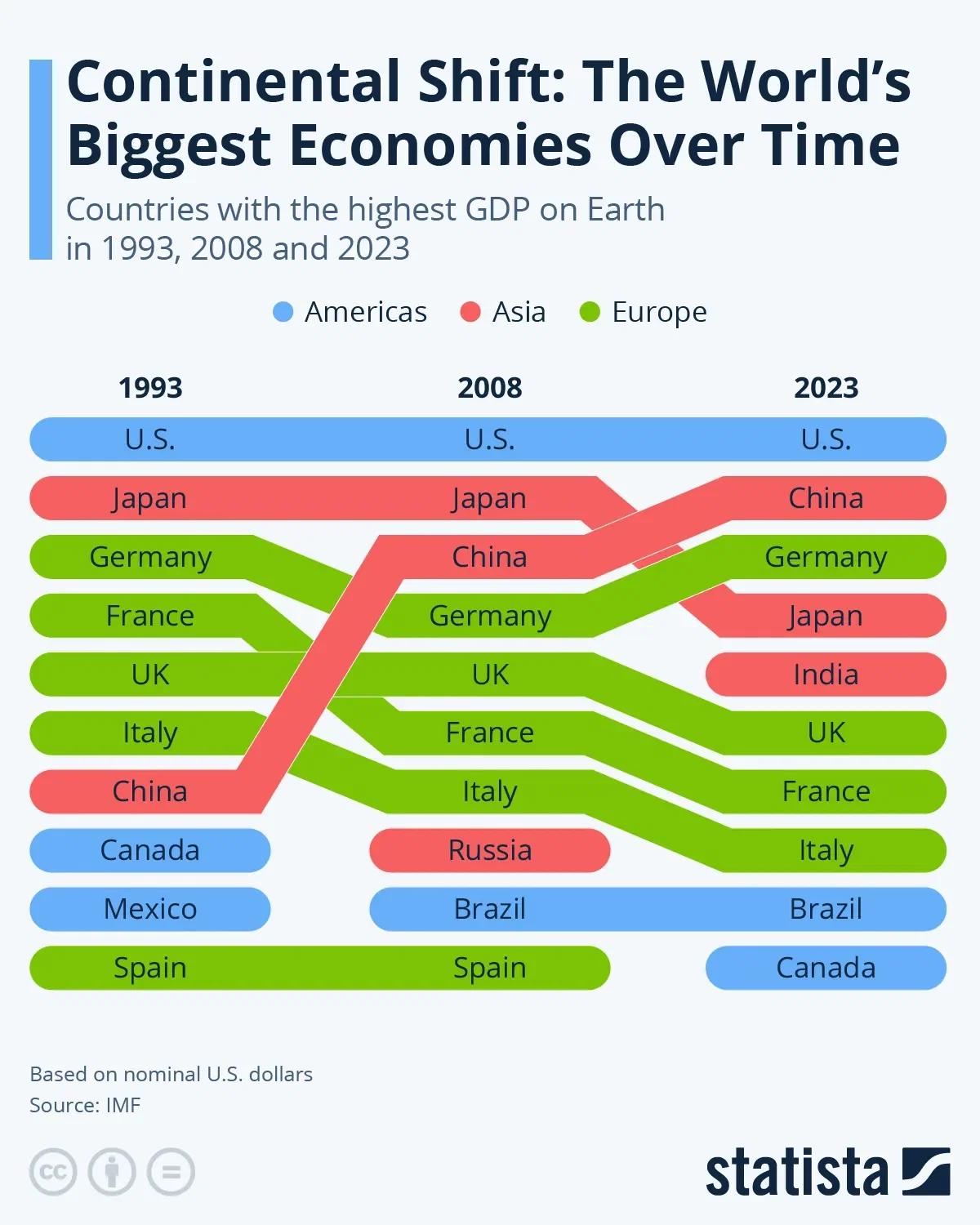Continental Shift: The Biggest Economies Over Time

Once considered an absolute economic powerhouse, Japan is now the world's fourth-largest economy after the United States, China and Germany. The country's economy has in recent years struggled between low wage growth and low domestic demand as well as low capital expenditure and investment. The weakness of the Yen against the U.S. dollar did the rest to push the nation out of the world economy's biggest three in 2023.
Despite Japan's poor performance, the raking of the largest economies over time shows a bigger Asian presence towards the top due to the growth of China and India. The ranking is based on nominal figures, meaning that GDP is not adjusted for purchasing power parity, which is sometimes done to make economic data more comparable between countries with lower and higher price levels. Applying this metric instead, Japan has been the world fourth-largest economy since 2009 behind China, the United States and India, but still ahead of Germany.
As seen in International Monetary Fund data, Japan was the world's second-largest economy behind the United States all through the 1980s, 1990s and into the 2000s. By 2008, China had definitively caught up to rank 3 and overtook Japan shortly after - in 2010 - as part of its seemingly unstoppable ascent. Now, 13 years later, it is down another spot for Japan which is struggling to hold on to its economic legacy that was built, similar to that of Germany, in the post-World War II boom period.
The IMF had already predicted Japan slipping behind Germany in the ranking as of October. Additionally, it predicts that by 2028, Japan will only occupy rank 5 among global economies. By that time, India is expected to have mimicked China's meteoric economic rise, leaping to rank 3.